Your mental health is influenced by more than just experiences or brain chemistry; it’s written into your DNA. But here’s the twist: the expression of your genes—how they “turn on” or “turn off”—can be shaped by your environment, lifestyle, and even certain nutrients.
Lithium, a naturally occurring trace mineral, plays a remarkable role in this genetic interplay. By influencing the activity of specific genes, lithium has the potential to improve mental resilience, enhance emotional stability, and even protect against neurodegenerative diseases.
Lithium’s impact on gene expression goes beyond conventional medicine. In functional psychiatry, its ability to modulate key biological pathways has been celebrated as a breakthrough.
From promoting the growth of new neurons to calming genetic signals that trigger inflammation, lithium’s role as a powerful epigenetic regulator is transforming the way we think about mental health.
The Basics of Gene Expression and Mental Health
Our mental health isn’t just shaped by life experiences and environment—it’s also influenced by the way our genes are expressed. Gene expression is the process by which certain genes are activated or deactivated, determining everything from mood regulation to stress resilience.
Epigenetics plays a major role in this process.
Unlike genetic mutations, which are permanent, epigenetic changes can be influenced by lifestyle, diet, and even specific nutrients. This means that while we may inherit genetic tendencies toward anxiety, depression, or other mood disorders, the way those genes behave can be modified.
Research shows that factors like stress, poor nutrition, and inflammation can negatively alter gene expression, while certain interventions—like lithium—can help restore balance.
Lithium as an Epigenetic Modulator
One of lithium’s most fascinating abilities is its impact on gene regulation. It works at an epigenetic level by modifying DNA methylation and histone acetylation, two processes that determine whether specific genes are activated or silenced.
- Turning Off Harmful Genes: Lithium has been shown to reduce the expression of genes linked to inflammation and neurodegeneration, which are often overactive in individuals with depression and bipolar disorder. By suppressing these harmful pathways, lithium helps protect brain cells and improve emotional stability.
- Turning On Protective Genes: On the flip side, lithium promotes the activation of genes involved in neuroprotection, brain plasticity, and emotional resilience. This helps enhance mental clarity, stabilize mood, and even improve cognitive function.
- Impact on Histone Acetylation: Histones are proteins that help package DNA, and their modification can either promote or block gene expression. Lithium supports histone acetylation, which has been linked to better memory formation and learning. Studies suggest that this mechanism plays a key role in lithium’s ability to reduce depression and improve cognitive function over time.
The Brain-Derived Neurotrophic Factor (BDNF) Connection
BDNF is one of the most important proteins for brain health. It acts like a fertilizer for neurons, promoting growth, repair, and resilience against stress-related damage. Low BDNF levels are associated with depression, anxiety, and even neurodegenerative diseases like Alzheimer’s.
Lithium has been shown to increase BDNF levels, helping to:
- Support neuron survival and repair, reducing the risk of long-term brain damage
- Improve mood by enhancing synaptic connections and brain plasticity
- Protect against brain shrinkage, which is commonly seen in individuals with chronic depression and bipolar disorder
Long-term studies suggest that lithium’s ability to boost BDNF may contribute to its neuroprotective and antidepressant effects, making it a valuable tool in functional psychiatry.
Lithium’s Role in Inflammation and Neuroprotection
Chronic inflammation is increasingly recognized as a major driver of mental health conditions. Studies have linked excessive inflammation to depression, anxiety, and cognitive decline.
Lithium helps balance inflammation in two key ways:
- Suppressing Pro-Inflammatory Gene Pathways: Overactive inflammatory responses can harm brain cells, leading to increased risk of depression and neurodegeneration. Lithium has been shown to downregulate inflammatory markers and protect against excessive immune activation in the brain.
- Activating Protective Pathways: Lithium enhances the expression of anti-inflammatory genes, helping to reduce oxidative stress and prevent neuronal damage. This may explain why long-term lithium use is associated with a lower risk of dementia and cognitive decline.
Emerging research suggests that lithium’s ability to regulate inflammation could play a role in treating neurodegenerative diseases, including Alzheimer’s and Parkinson’s.
Practical Applications for Functional Psychiatry
Lithium’s ability to influence gene expression, neuroprotection, and inflammation makes it a valuable tool in functional psychiatry.
But how can it be used effectively?
- Low-Dose Supplementation: Research supports the use of 1-5 mg daily for cognitive and emotional benefits, with some individuals requiring up to 20 mg depending on their needs, under directed supervision. This is far below the high doses used in psychiatric medications, making it a safe and well-tolerated option.
- Integrating with Other Functional Approaches: Lithium works best when combined with other lifestyle and nutritional strategies, such as a brain-healthy diet, mindfulness practices, and targeted supplementation. Supporting overall mental well-being with omega-3 fatty acids, magnesium, and antioxidant-rich foods can further enhance its benefits.
- Monitoring and Optimization: Functional medicine practitioners often assess lithium levels in hair, blood, or urine tests to ensure proper dosing. Since lithium is naturally present in water and food, individual requirements may vary.
Lithium is a Natural Way to Support Emotional and Cognitive Health
Mental health is no longer viewed as an isolated issue of chemical imbalance; it’s a dynamic interplay of genetics, environment, and biology. Lithium’s ability to modulate gene expression puts it at the forefront of functional psychiatry.
By enhancing protective genes, reducing harmful ones, and promoting neuronal growth, lithium offers a path to deeper emotional resilience and cognitive health.
This overlooked mineral holds the potential to change lives, providing safe and natural support for those facing depression, anxiety, or even early cognitive decline. If you’re seeking a science-backed, holistic approach to mental wellness, lithium could be the missing piece in your journey to better health.


